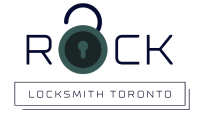A Comprehensive Security Audit in Toronto ensures that businesses in this bustling city are well-equipped to handle the dynamic and ever-evolving landscape of cybersecurity threats. With Toronto being a major hub for businesses and organizations, the need to prioritize security measures is paramount. One unique insight to consider is the fact that cyber attacks can cost businesses a significant amount of money and reputation damage. This means that investing in a comprehensive security audit is not only a proactive approach but also a potentially cost-saving one.
When it comes to the impacts of a comprehensive security audit, businesses in Toronto can benefit in multiple ways. Firstly, it allows them to identify vulnerabilities and weaknesses in their current security systems, ensuring that potential threats are detected and mitigated. Additionally, a comprehensive security audit helps businesses stay compliant with relevant regulatory requirements, thereby avoiding hefty fines and penalties. Moreover, this audit also helps organizations build trust with their customers, partners, and stakeholders by demonstrating their commitment to protecting sensitive data.
The key takeaways that will be discussed in the following sections of this article include the importance of a comprehensive security audit in Toronto, the various aspects covered in such an audit, and the steps businesses can take to ensure they are adequately prepared for potential cybersecurity threats. By diving deeper into these topics, readers will gain a better understanding of the intricacies associated with a comprehensive security audit and how it can safeguard their business in the long run.
Key Takeaways
1. A comprehensive security audit in Toronto is necessary to identify potential vulnerabilities and weaknesses in a company’s security systems. It can pinpoint areas where improvements need to be made to ensure the protection of sensitive data and assets.
2. The audit involves evaluating physical security measures, such as access controls, surveillance systems, and alarm systems, as well as reviewing cybersecurity protocols, including network security, data encryption, and employee training on best practices.
3. Hiring a professional security firm is recommended to conduct the audit, as they have the expertise and knowledge to thoroughly assess all aspects of a company’s security. They can provide unbiased recommendations and suggest effective solutions to enhance security measures.
4. Regularly performing security audits is crucial to keeping up with evolving threats and staying one step ahead of potential breaches or security incidents. It helps businesses adapt their security strategies to address new risks and technologies.
5. A comprehensive security audit not only helps companies protect their assets and confidential information, but it can also improve customer trust and demonstrate a commitment to security. It can potentially prevent costly breaches, legal issues, and reputational damage, making it a worthwhile investment for businesses in Toronto and beyond.
What are the Key Elements of a Comprehensive Security Audit in Toronto?
Why is a Comprehensive Security Audit Important?
A comprehensive security audit is a crucial process for businesses operating in Toronto to ensure the safety and protection of their assets, employees, and data. By conducting regular security audits, organizations can identify vulnerabilities, assess risks, and implement necessary measures to mitigate potential threats. This section discusses the significance of comprehensive security audits.
Understanding the Scope of a Security Audit
Before delving into the details, it is important to have a clear understanding of the scope of a comprehensive security audit. Such an audit assesses various aspects of security, including physical security, information security, network security, and personnel security. Each of these components plays a vital role in providing comprehensive protection to an organization.
The Process of Conducting a Comprehensive Security Audit
1. Identifying Security Goals: The first step in conducting a comprehensive security audit is to determine the specific security goals that need to be achieved. This could include protecting sensitive data, preventing unauthorized access, or safeguarding physical premises.
2. Assessing Security Measures: The next phase involves evaluating the existing security measures in place. This includes examining access control systems, security cameras, firewalls, intrusion detection systems, and more.
3. Identifying Vulnerabilities: During the audit, vulnerabilities in the security system are identified. This could include unsecured entry points, outdated software, weak passwords, or inadequate training of personnel.
4. Risk Analysis: After identifying vulnerabilities, a risk analysis is conducted to evaluate the potential impact and likelihood of threats. This helps prioritize mitigation efforts based on the level of risk posed.
5. Implementing Mitigation Measures: Based on the findings of the audit and risk analysis, appropriate measures are implemented to address the identified vulnerabilities. This could involve patching software, strengthening physical security, enhancing network security, or providing training to employees.
The Benefits of a Comprehensive Security Audit in Toronto
A comprehensive security audit in Toronto offers several benefits to organizations, including:
– Enhanced Protection: By conducting regular audits, businesses can identify and address security gaps, thus providing better protection against potential threats.
– Regulatory Compliance: Many industries have specific security regulations that need to be adhered to. A comprehensive security audit ensures compliance with these regulations and avoids potential penalties and legal issues.
– Improved Incident Response: By assessing the existing security measures and identifying vulnerabilities, organizations can improve their incident response capabilities. This enables a quick and effective response to security incidents or breaches.
– Stakeholder Confidence: A comprehensive security audit demonstrates a commitment to security and instills confidence in stakeholders such as customers, partners, and investors.
Best Practices for Conducting a Security Audit
To ensure an effective and comprehensive security audit in Toronto, organizations should consider the following best practices:
1. Establish Clear Objectives: Clearly define the goals and objectives of the audit to focus efforts on the most critical areas.
2. Engage Professionals: Consider involving experienced security professionals who can provide expertise and ensure a thorough audit process.
3. Conduct Regular Audits: Implement a schedule for regular security audits to stay updated on emerging threats and continuously improve security measures.
4. Collaborate with Stakeholders: Involve relevant stakeholders from different departments to gain a comprehensive understanding of security requirements and concerns.
5. Document Findings and Recommendations: Keep thorough documentation of audit findings and recommendations to track progress and guide future security enhancements.
By following these best practices, businesses in Toronto can maximize the effectiveness of their comprehensive security audits and strengthen their overall security posture.
5 Essential Tips for a Successful Comprehensive Security Audit in Toronto
1. Assess Physical Security Measures: Evaluate the physical security of your premises by examining access control systems, surveillance cameras, alarm systems, and perimeter security measures. Ensure that these measures are in line with industry standards and address any vulnerabilities.
2. Evaluate Information Security Protocols: Analyze the effectiveness of your information security protocols, including data encryption, access controls, password policies, and backup procedures. Identify any weaknesses and implement appropriate measures to enhance information security.
3. Review Network Security: Conduct a thorough assessment of your network security infrastructure, including firewalls, intrusion detection systems, and network segmentation. Verify that these components are properly configured, regularly updated, and provide adequate protection against cyber threats.
4. Test Security Incident Response: Test the effectiveness of your security incident response procedures by simulating various scenarios, such as data breaches or physical security breaches. Evaluate the response time, coordination among various teams, and effectiveness of incident containment and recovery processes.
5. Stay Updated on Threat Landscape: Regularly monitor the latest security threats and vulnerabilities relevant to your industry. Stay informed about emerging trends, new attack vectors, and security best practices. This knowledge will help you adapt your security measures and stay ahead of potential threats.
Remember, comprehensive security audits are an ongoing process, and it is essential to review and update your security measures regularly to address evolving threats and ensure optimal protection for your business in Toronto.
Frequently Asked Questions
1. What is a Comprehensive Security Audit?
A Comprehensive Security Audit is a thorough examination of an organization’s security systems, processes, and policies to identify vulnerabilities and potential risks. It aims to ensure that the organization is adequately protected against security threats.
2. Why should a company in Toronto consider a Comprehensive Security Audit?
Companies in Toronto, like any other place, are susceptible to various security threats, including cyber attacks, physical breaches, and internal misconduct. A Comprehensive Security Audit helps identify weaknesses in existing security measures and provides recommendations to strengthen the overall security posture.
3. How often should a Comprehensive Security Audit be conducted?
The frequency of conducting a Comprehensive Security Audit depends on factors such as the industry, the size of the organization, and regulatory requirements. Generally, it is recommended to conduct audits annually or whenever significant changes occur within the organization.
4. What does a Comprehensive Security Audit entail?
A Comprehensive Security Audit typically involves evaluating the physical security controls, network infrastructure, access controls, threat prevention measures, incident response procedures, and compliance with relevant regulations. It may also include penetration testing and vulnerability assessments.
5. Can a Comprehensive Security Audit guarantee complete protection against all security threats?
No security measure or audit can guarantee absolute protection. However, a Comprehensive Security Audit significantly reduces the risk by identifying weaknesses and suggesting remediation measures. It helps organizations stay proactive and better equipped to defend against potential threats.
6. How long does a Comprehensive Security Audit take to complete?
The time required to complete a Comprehensive Security Audit may vary depending on the size and complexity of the organization. It can range from a few days to several weeks. The auditors will work closely with the organization to ensure a thorough evaluation is conducted.
7. Who should conduct a Comprehensive Security Audit in Toronto?
A Comprehensive Security Audit should ideally be conducted by experienced and certified professionals with expertise in security auditing. Hiring a reputable security consulting firm or engaging certified auditors ensures the audit is conducted objectively and in compliance with established standards.
8. What are the potential benefits of a Comprehensive Security Audit?
Some potential benefits of a Comprehensive Security Audit include identifying vulnerabilities before they are exploited, improving incident response capabilities, enhancing compliance with regulations, strengthening customer trust, and avoiding costly security breaches.
9. Can a Comprehensive Security Audit help with regulatory compliance?
Yes, a Comprehensive Security Audit can assist organizations in meeting regulatory requirements by evaluating their security controls, policies, and practices. It helps identify gaps and provides recommendations to align with industry-specific regulations.
10. How much does a Comprehensive Security Audit cost?
The cost of a Comprehensive Security Audit can vary depending on the size of the organization, scope of the audit, and the reputation of the auditor. It is recommended to request quotes from multiple reputable auditors and compare their offerings to make an informed decision.
Final Thoughts
Ensuring the security of your organization is not a task to be taken lightly. A Comprehensive Security Audit in Toronto serves as a robust measure to evaluate your security posture, strengthen defenses, and mitigate potential risks. By proactively identifying vulnerabilities and implementing recommended improvements, you can significantly enhance your organization’s resilience against security threats.
Remember, a Comprehensive Security Audit should be a recurring practice, especially in an ever-evolving threat landscape. It helps protect your business and instill confidence in your stakeholders, ensuring that you are prepared to face the security challenges of today and tomorrow.






Recent Comments